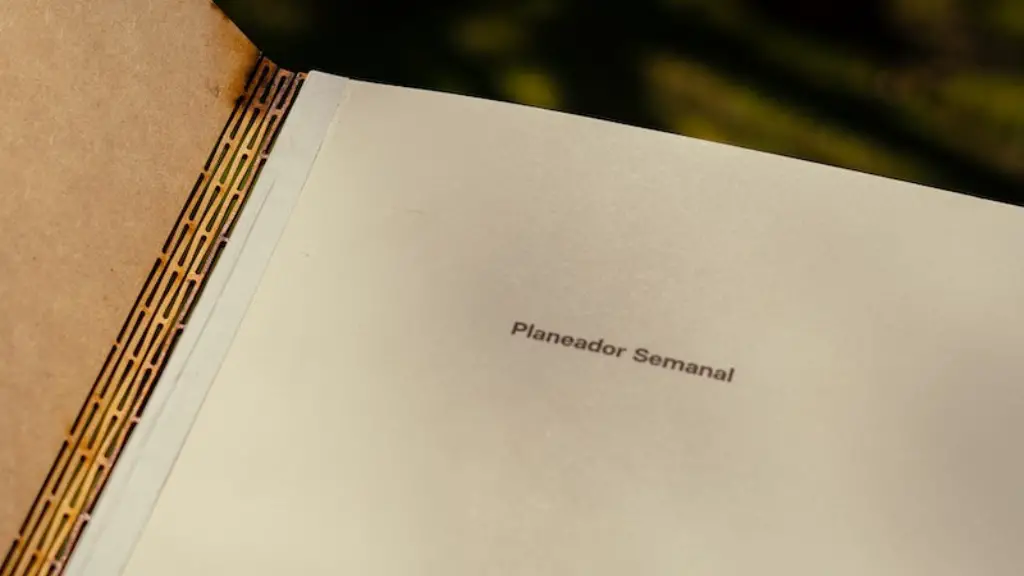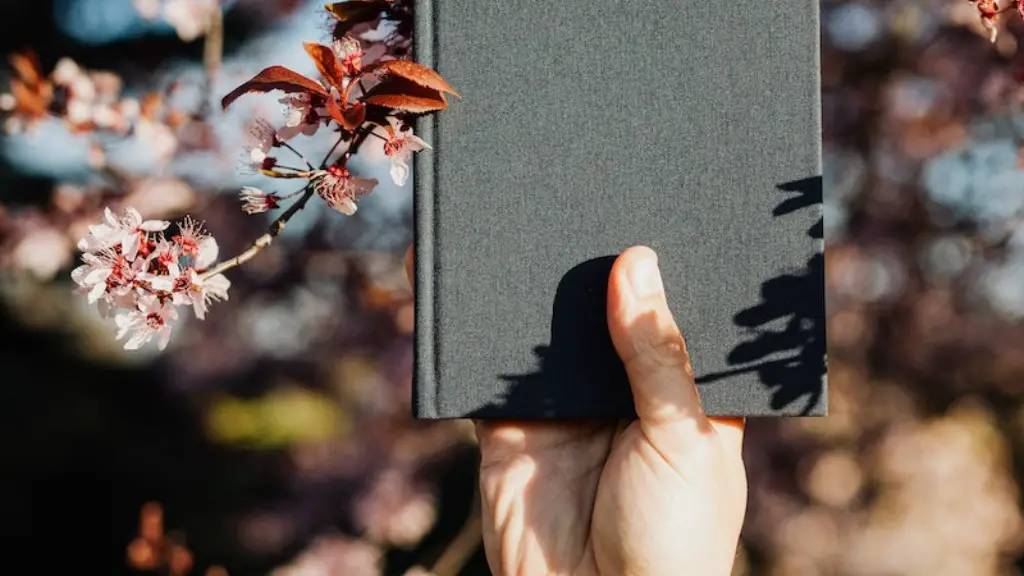Free verse poetry is a literary form of writing that does not use any type of rhythm or meter, but retains many of the conventions and common features of traditional poetry. Free verse is not restricted by the rules of rhyme, meter, and form, but may sometimes employ them in order to create an interesting effect or highlight a particular theme. Nor is it regulated by line lengths, syllable counts, and stress patterns. This kind of freedom allows a poem to be shaped according to an individual’s preferences and desires.
In free verse poetry, writers may use natural rhythms and structures, but they are not tied down to any particular meter or form. Writers may even delete words and lines freely in order to create the desired effect and to ensure that the poem follows its own course of development. Moreover, free verse allows writers to express themselves fully and gives them the opportunity to explore their thoughts and feelings.
Experts in the field of poetry are highly aware of the fact that free verse does not follow any strict rules, and stresses the importance of creativity. They recognize its potential for expressing emotion in many different ways. Consequently, it has become an incredibly popular type of writing, allowing poets to express their emotions and thoughts without being confined by the traditional rules of poetry.
Furthermore, free verse has enabled poets to explore new and unconventional ways of expressing themselves. This has resulted in the emergence of ‘sound poetry’, in which the reader can interpret the poem as much through sound itself, as they can through the words. It also allows room for performances, which have become a popular means of expression in recent years.
My own experiences with free verse writing have been incredibly rewarding. I find that through this particular type of writing, I am able to access my innermost thoughts and bring them to life through my writing. Doing this enables me to make sense of my thoughts and feelings and express them freely. Additionally, I am able to explore different aspects of a single issue or idea in greater depth than in traditional poems.
The Importance of Sound and Rhythm in Free Verse Poetry
In free verse poetry, the sound of words and the rhythm of the lines are significant in conveying the poem’s message. Rather than relying solely on meter and rhymes, writers focus on different sound and rhythmic effects, such as alliteration, assonance, and repetition. Through these techniques, writers are able to add emphasis to certain words and express their feelings more effectively.
Additionally, although free verse does not depend on a specific meter or rhyme scheme, writers still rely on line breaks and punctuation to indicate pauses and create an effect of movement. These pauses help set the pace and rhythm of the poem and create an interesting effect during reading and performance.
In conclusion, free verse is a powerful form of writing that allows poets to explore new and different ways of expressing their thoughts and feelings. Through this writing form, poets are able to create their own rules that are particular to their writing, allowing them to personally connect with the poem and its meaning.
The Ability to Add a Level of Complexity
Although free verse typically appears to be simpler than traditional poetry, it still offers writers an opportunity to add a level of complexity to their writing. By including specific patterns and images, writers can create a deeper level of meaning and convey a more sophisticated idea.
For example, some free verse poems might involve multiple, overlapping images that explore themes such as time, space, death, or life. Furthermore, experts in this genre recognize the potential to use multiple voices or styles in order to add depth and subtlety to a poem. This allows for a range of topics and ideas to be explored without being constrained by traditional forms of poetry.
Moreover, the lack of rules in free verse provides poets the possibility to experiment and to explore their ideas. By using different techniques and tools, such as alliteration and repetition, poets can create interesting and complex effects that are tailor-made for their particular poem. Additionally, by combining different elements such as metaphors and similes, poets can add a variety of layers and textures to their writing.
In effect, free verse offers its writers a wide array of options and techniques to choose from when creating their poem. This gives them a greater degree of freedom and control over their work, enabling them to put their own signature on it.
The Benefits Offered by Free Verse Poetry
Since its inception, free verse has been widely adopted by writers, as it offers many unique benefits. Firstly, as it is not bound by rigid rules, this type of writing allows poets to portray their thoughts and feelings in a new and creative way. Additionally, free verse is precise and concise, enabling the writer to make an impact within a limited amount of words. This emphasizes the importance of the poet’s choice of words and the effect each creates.
Furthermore, it allows writers to explore poetry without being limited by traditional forms and to create their own rules for the poem. This is especially beneficial for poets who are just beginning, as it allows them to learn more and develop their own style. Moreover, free-verse also employs writing techniques such as imagery, alliteration, assonance, and repetition, which are essential for creating effective poetry.
Finally, free verse is remarkably adaptable, as it can be used to explore different topics, experiences, and emotions. It has become increasingly popular due to the ever-growing need to break away from the traditional rules of poetry and explore something new. Consequently, free-verse has become an essential part of modern poetry, as it gives poets the freedom they need to express themselves and their thoughts.
The Role of Experimentation in Free Verse Poetry
One of the most important aspects of free verse is experimentation. By experimenting with different techniques, ideas and voices, writers are able to create something entirely new and unique. As a result, many poets are able to create works of art that represent their own vision and creativity.
For example, when creating a free verse poem, poets often make use of non-traditional elements such as abstract language, alternate word order, and word play. This helps to give a poem a unique voice and adds an extra layer of meaning. Additionally, poets are able to explore different themes, emotions, and ideas. By doing this, they are able to create a unique and powerful poem, which may reflect an individual’s journey or be a direct reflection of the poet’s personal experiences.
Moreover, experimentation with sounds is also important in free verse, as it helps to create a more powerful reading experience. By using sound to emphasize certain ideas, poets can build on the effect of their words, and bring their poem to life.
Finally, experimenting with different forms of writing is also essential in free verse. By combining different styles, voices and formats, poets can create complex, layered works of art that reflect their own unique perspective.
The Impact of Free Verse Poetry
As an innovative and unique form of writing, free verse has made an enormous impact on modern literature. Through free verse, writers have been able to express their emotions and thoughts in a creative and powerful way, unbound by the traditional rules of poetry. This has enabled writers to explore topics such as love, life, and death in a unique way, and to create something that is entirely representative of their views and experiences.
Furthermore, free verse has enabled poets to explore their own voice and creativity in a way that was not possible before. By using this form of writing, writers are able to break away from the traditional rules and explore something that is entirely their own. Consequently, free verse has had a major impact on the world of poetry.
Finally, free verse has also been popular among readers, as it provides a unique and interesting reading experience. The lack of rules has enabled writers to create something that is exciting and original, which can appeal to readers of all ages. In this way, free verse has revolutionized the art of reading, making it more accessible and inspiring to all.





